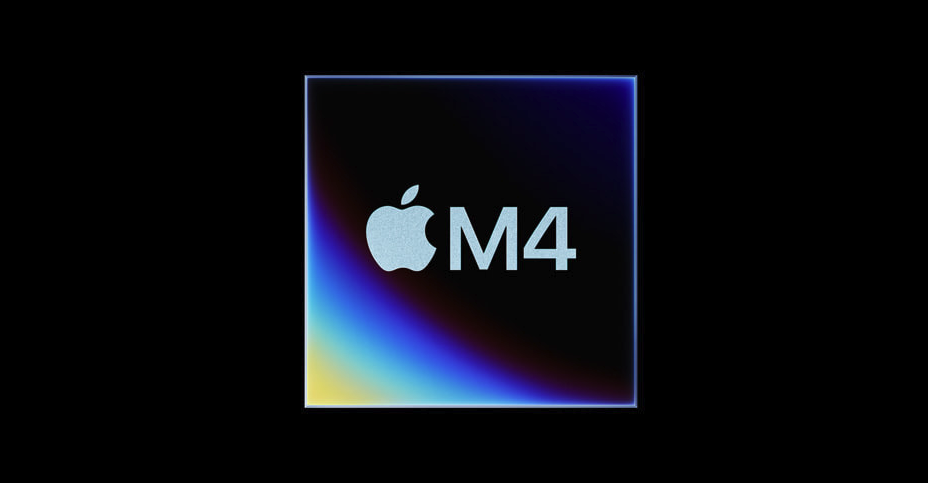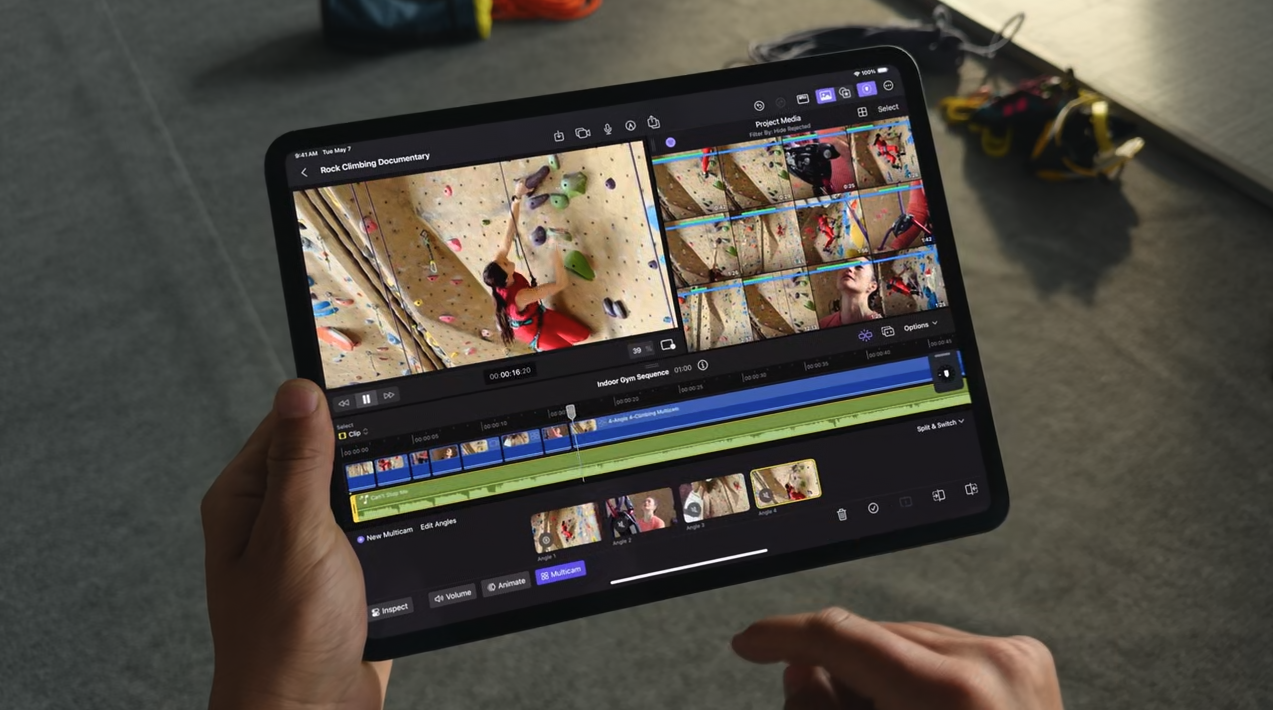iPad Pro lacks the AI software to match its powerful M4 chip, but that could change soon
The new iPad Pro’s hardware’s AI capabilities are incomplete without AI-backed software

Sign up to receive The Snapshot, a free special dispatch from Laptop Mag, in your inbox.
You are now subscribed
Your newsletter sign-up was successful
This week, Apple revealed a redesigned and refreshed iPad Pro, its top-of-the-line tablet. It improved its record of listening to customer complaints by seemingly resolving a handful of shortcomings from the 2022 version of the Pro. It’s much lighter and much thinner, for one. There’s a centered selfie camera that adds premium upgrades like a “Tandem OLED” screen. It works with a new squeezable Apple Pencil Pro and MacBook-like Magic Keyboard. Its highlight, though, is the M4 chip inside it, marking the first time Apple has debuted its latest computer-grade silicon on a tablet.
On paper, the iPad Pro’s M4 silicon is a workhorse. Apple says its ten-core CPU is 50 percent faster than the M2 found in the previous-gen iPad Pro (the Pro skipped the M3 chip altogether) while consuming only half the power. The 10-core GPU will lead to nearly four times faster performance in graphics-intensive activities like running professional-grade rendering apps.
Letting AI loose
However, it’s the new iPad Pro’s AI chops that set it apart. Apple claims the M4’s Neural Processing Unit (NPU), or as Apple likes to call it, the “Neural Engine,” is more capable than any of its PC counterparts.
To wit: Tim Millet, Apple’s vice president of Platform Architecture, declared the M4 chip an “outrageously powerful device for AI.”

While watching the events unfold on my laptop screen, I couldn’t help but notice how little time Apple spent showing off the new iPad Pro’s AI capabilities, barring the half-minute Final Cut demo, where it manages to isolate a person from their background — in 4K video, no less — with a tap of a button. That was cool. But that was it.
While Apple may claim the most powerful, portable computer for AI with the 2024 iPad Pro, it currently lacks killer AI software.
However, this fallow period may be short-lived, even as the competition appears to be beating Apple in debuting AI software. (WWDC 2024, Apple's annual developer conference, is right around the corner in June, and may signal the dawn of Apple's AI software empire.)
Sign up to receive The Snapshot, a free special dispatch from Laptop Mag, in your inbox.
When it comes to the competition moving faster than Apple, though, one just needs to look at Microsoft right now. Over the last year, the software giant has rolled out a drumbeat of AI updates for Windows 11, including a context-aware chatbot, generative AI options in its Office productivity suite, and soon, an AI Explorer that will potentially turn everything you do on your computer into a searchable memory.
Microsoft’s upcoming hardware event will see it unveil a range of new Arm-powered Surface computers backed by the much-anticipated Qualcomm Snapdragon X Elite, which theoretically could be better at running AI than Apple’s M4. The X Elite's NPU boasts up to 45 trillion operations per second (TOPS) compared to 38 TOPS for the M4. However, how each will leverage this performance could make all the difference.
Google, similarly, had more to show than tell when it introduced its “AI Phone,” the Pixel 8a, shortly after Apple’s Let Loose event. It comes loaded with AI-powered tools, from an Audio Magic Eraser, a way to automatically crop out distracting sounds from your videos, to Circle to Search, which lets you circle anything you see on the screen with your finger to look it up on the company’s Gemini chatbot to call assistive features.
In comparison, Apple has made a curious choice to introduce the iPad Pro before building AI into iPadOS. However, that doesn’t detract from the iPad’s tremendous potential as an AI device.
Its high-end multimodal capabilities for vision, touch, and mobile could be a better companion to the direction of AI development than a conventional Mac. Much of your iPad-based productivity will be AI-assisted, and the jobs traditionally associated with a laptop will migrate to the tablet.
Apple, an AI sleeping giant?

For Apple, the iPad Pro sets the stage for its long-awaited AI chapter. It has always been fashionably late to trends, and generative AI seems to be no exception. Behind the scenes Apple is reportedly investing millions of dollars per day researching the technology and gearing up to overhaul its hero products, including iOS 18 — considered internally one of the biggest updates to its mobile operating system — with AI front and center.
“We believe in the transformative power and promise of AI, and we believe we have advantages that will differentiate us in this new era,” Tim Cook told investment analysts during an Apple earnings call last week.
Over the last few months, Apple has quietly laid down the stepping stones for its AI features. Like OpenAI and Google, Apple is preparing a multimodal large language model — the kind that powers ChatGPT — that can answer questions, help you understand the world by looking at it, or research a specific element on the screen you may have selected.
What’s more interesting, however, are Apple’s OpenELM models, which are a fraction the size of a typical LLM and yet perform at nearly the same level so that they can run on devices and not consume ungodly volumes of space and power on your devices. In one instance, Apple experimented with a compressed version of an existing Google model, and though it was 15 times smaller, it only caused a 4 percent dip in quality. There’s also a chance Apple may team up with Google and integrate its Gemini AI tech into its software, at least until its in-house models are ready.
These advancements will be ideal for Apple’s ambitions, which rumors suggest it wants to have all its AI features running on devices and offline to preserve user privacy. While it’s natural to assume Apple will debut these models first inside the Siri voice assistant, its publicly published research sheds light on several Google-like features, including a tool that lets people fix their photos with a simple prompt, refine AI-generated professional designs, and more.
Scores of native apps on iPadOS, too, could immediately benefit from a dash of AI, such as auto-generated spreadsheets inside Numbers, code assistance on XCode, and upgrades to Spotlight search.
For now, iPad Pro buyers will have to wait a few months to put their new device’s AI prowess to the test … and continue to live without a native calculator app.
MORE FROM LAPTOP MAG
- Where to preorder the new iPad Pro M4
- The iPad Pro M4 has outgrown iPadOS, but is it ready for macOS?
- MacBook Air M3 13-inch vs. iPad Pro M4: Is Apple's new tablet more powerful?
Shubham Agarwal is a freelance technology journalist from Ahmedabad, India. His work has previously appeared in Business Insider, Fast Company, HuffPost, and more. You can reach out to him on Twitter.
